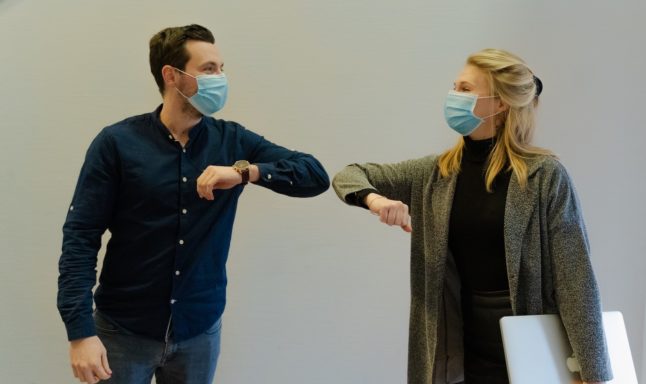Switzerland on Wednesday cited a positive epidemiological development as a reason why its planned loosening of Covid measures will be more extensive than previously thought.
Swiss Health Minister Alain Berset said the changes were “quite brave”, although he called upon members of the public to continue to be responsible.
Berset also told those who had not been vaccinated yet to do so, with half of the population expected to be vaccinated by the end of June.
What measures have been relaxed?
A major change is that the relaxations will come into effect on Saturday, June 26th – rather than the June 28th date previously given by the government.
The changes to the travel rules are still set to come into effect on the 28th.
People will no longer be required to work from home, with the obligation replaced by a recommendation to do so, while mandatory testing no longer needs to be carried out in the workplace.
Limits on the number of people who can sit at a table indoors will be lifted completely, with the government previously indicating they would rise from four to six. The limits will also be lifted outdoors.
The maximum number of people at events will also be lifted, with events of up to 1,000 people now allowed without approval and events of up to 10,000 people requiring approval.
There will be no requirement to wear masks or keep a distance during cultural and sporting activities – and the rules will no longer differentiate between professional and amateur sportspeople and artists.
Face-to-face teaching is again allowed to take place in universities and vocational schools.
A summary of the measures which are set to apply is available at the following link.
IN DETAIL: What are Switzerland’s new relaxed coronavirus measures?
#BREntscheid #CoronaInfoCH Der Bundesrat beschliesst weitere, grosse Öffnungen. Sie gelten ab 26. Juni. Die positive Entwicklung lässt dies zu. Doch Vorsicht bleibt geboten, noch sind nicht alle impfwilligen Personen geimpft. https://t.co/Xl7r7683RQ (BK) pic.twitter.com/fAC9cpEybQ
— André Simonazzi (@BR_Sprecher) June 23, 2021
Immunity passport needed to visit nightclubs and take part in large events
Central to the plan is ensuring people use Switzerland’s Covid immunity certificate. More information is available below.
READ MORE: What will Switzerland’s Covid-19 pass allow you to do?



 Please whitelist us to continue reading.
Please whitelist us to continue reading.
Reading the FOPH announcement today, it seems to say that visits from the UK will be possible from the 28th, providing you have had both jabs. Is that correct?
That’s the way I read it too. But if you then have to travel back to the UK, you will still end up in quarantine on their side due to the UK immigration rules. Switzerland is still ‘Amber’ and they still insist on PCR tests even for vaccinated travellers.
Yes, thanks for your reply. Perhaps the return quarantine requirement may be lifted soon for the double vaccinated – but at least travel is possible which is good news.
“Entry from a country with a variant of the virus of concern
The current list of high-risk countries issued by the Federal Office of Public Health is to be revised and will only contain countries or regions where virus variants of concern to Switzerland are in circulation. Persons who have been vaccinated or who have recovered from the disease will be permitted to enter Switzerland from these countries or regions without having to be tested or to quarantine as long as it is certain that the vaccination offers good protection. Those who have neither been vaccinated nor have recovered must present a negative PCR test or rapid antigen test and go into quarantine on entry.
In practice, this means that persons who have been vaccinated or who have recovered do not have to produce a negative test even when travelling from countries where the Delta variant is widespread (such as India or the United Kingdom) and do not have to quarantine on entry. The vaccines used in Switzerland are only slightly less effective against the Delta variant and thus still offer a very high level of protection.”